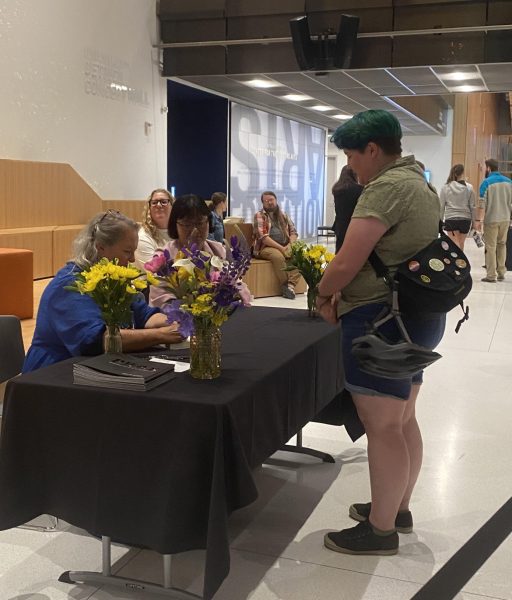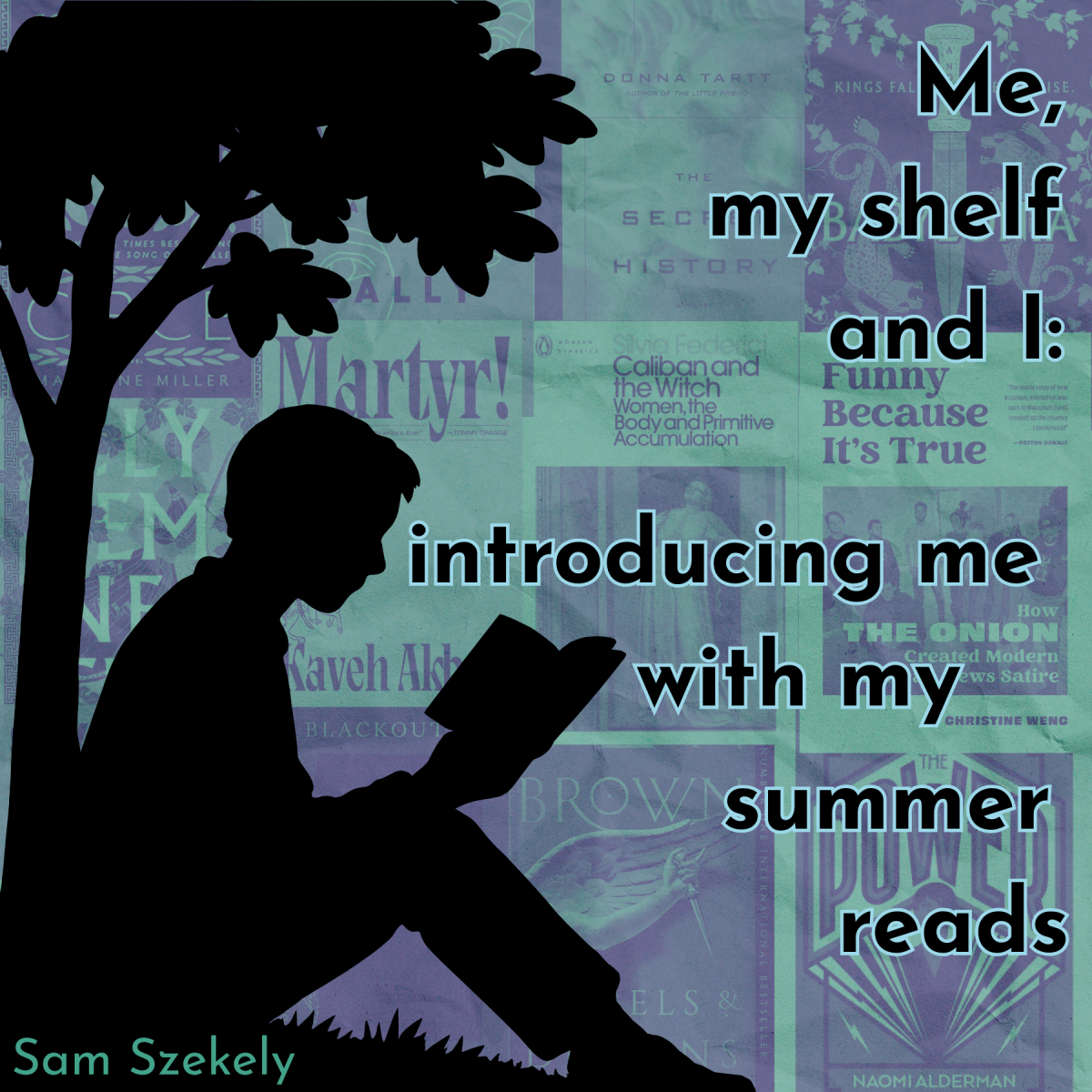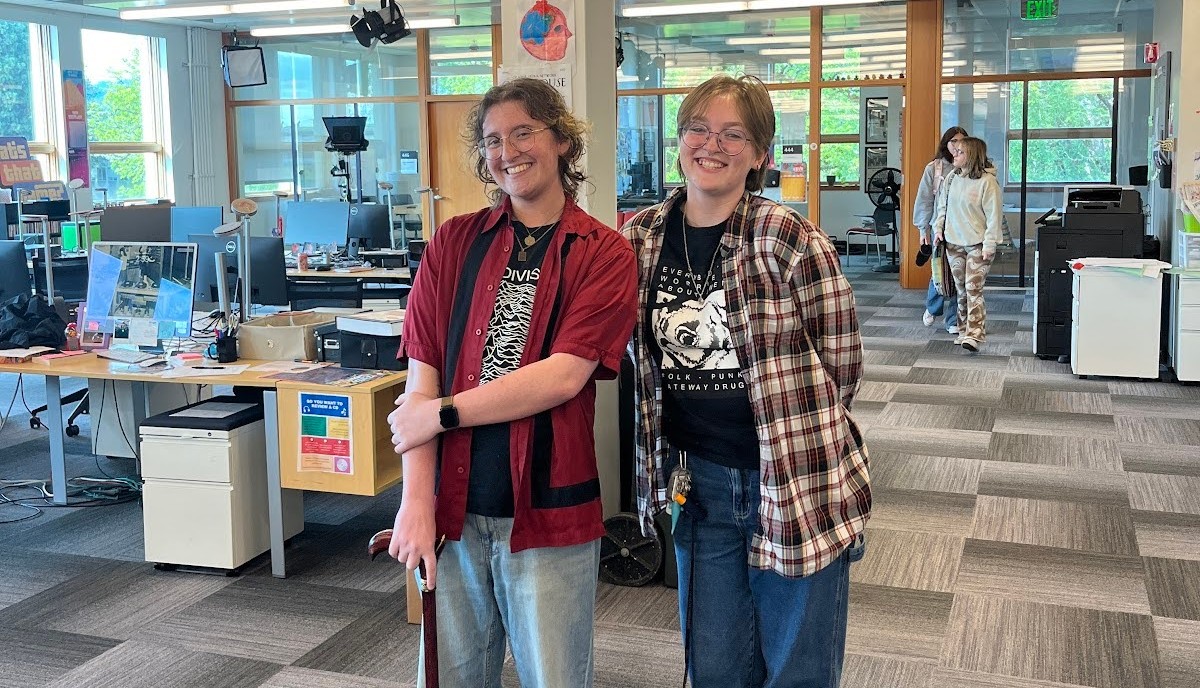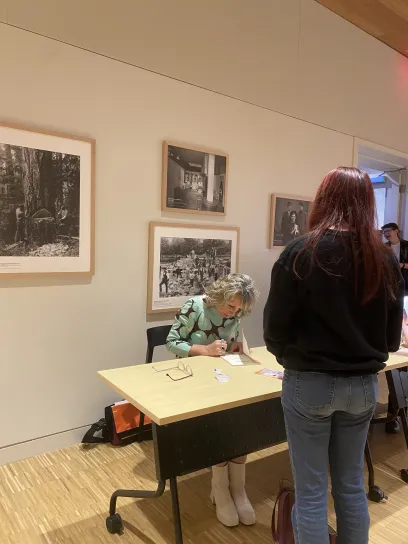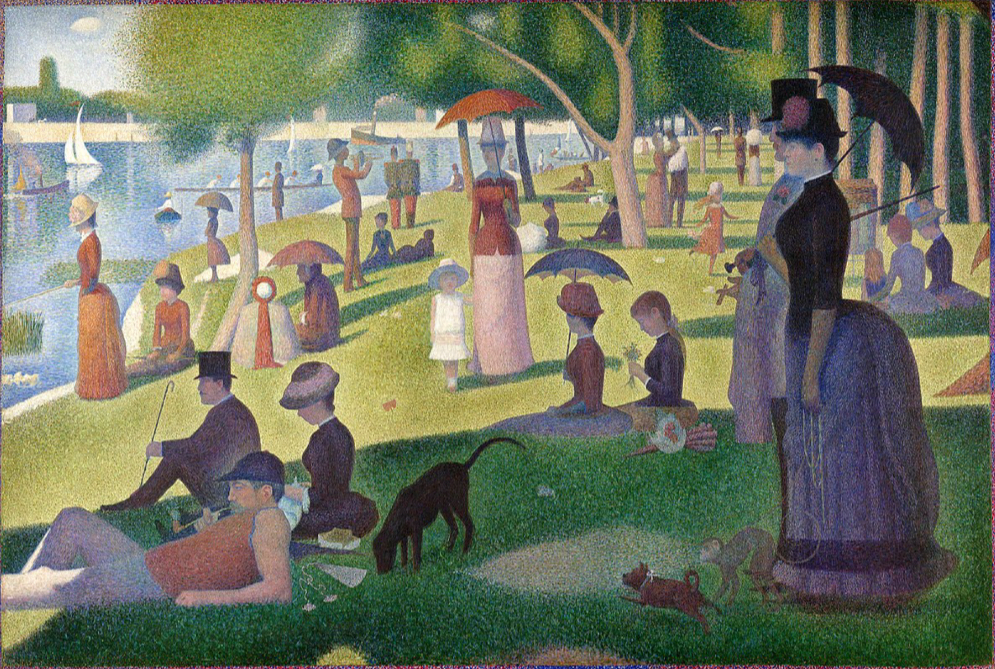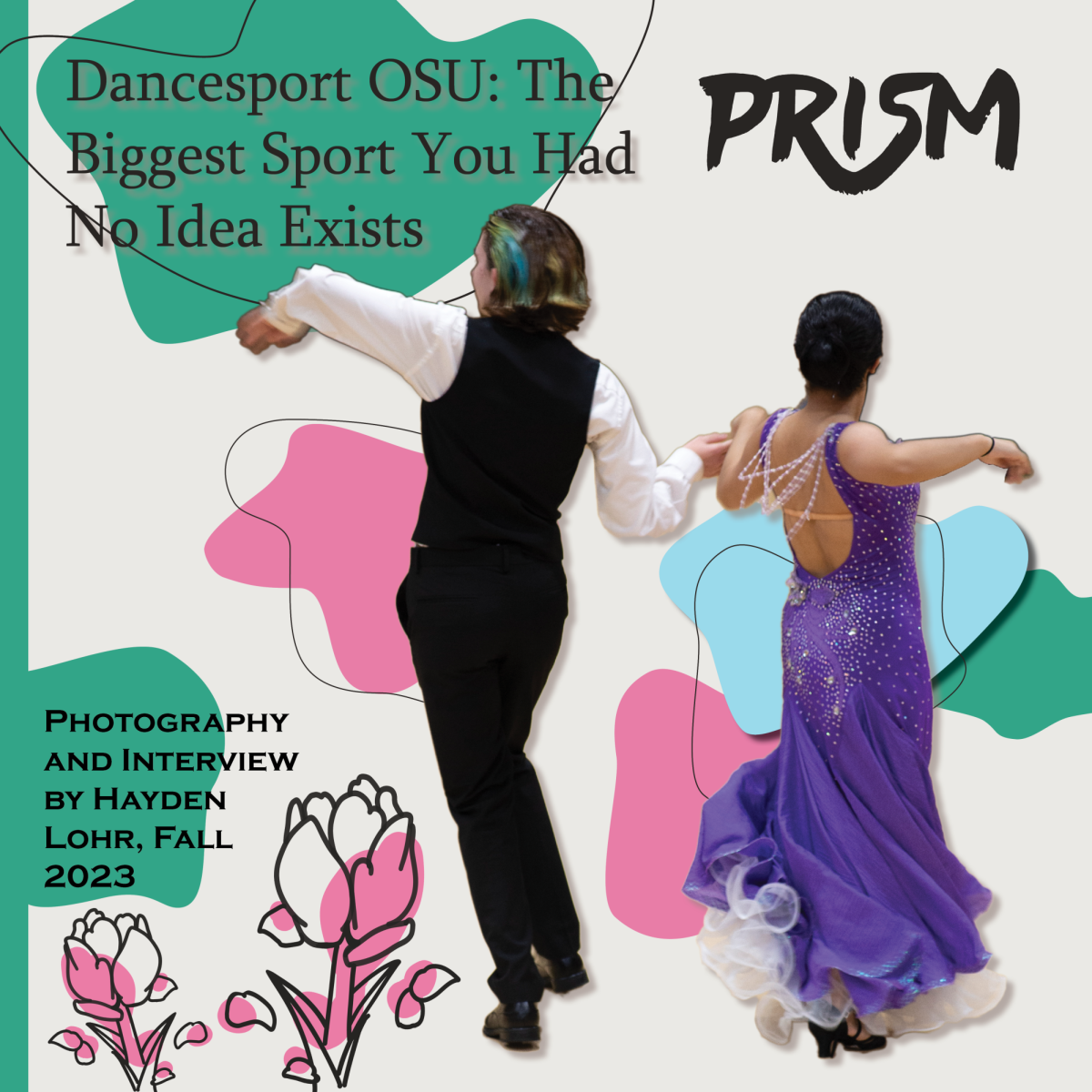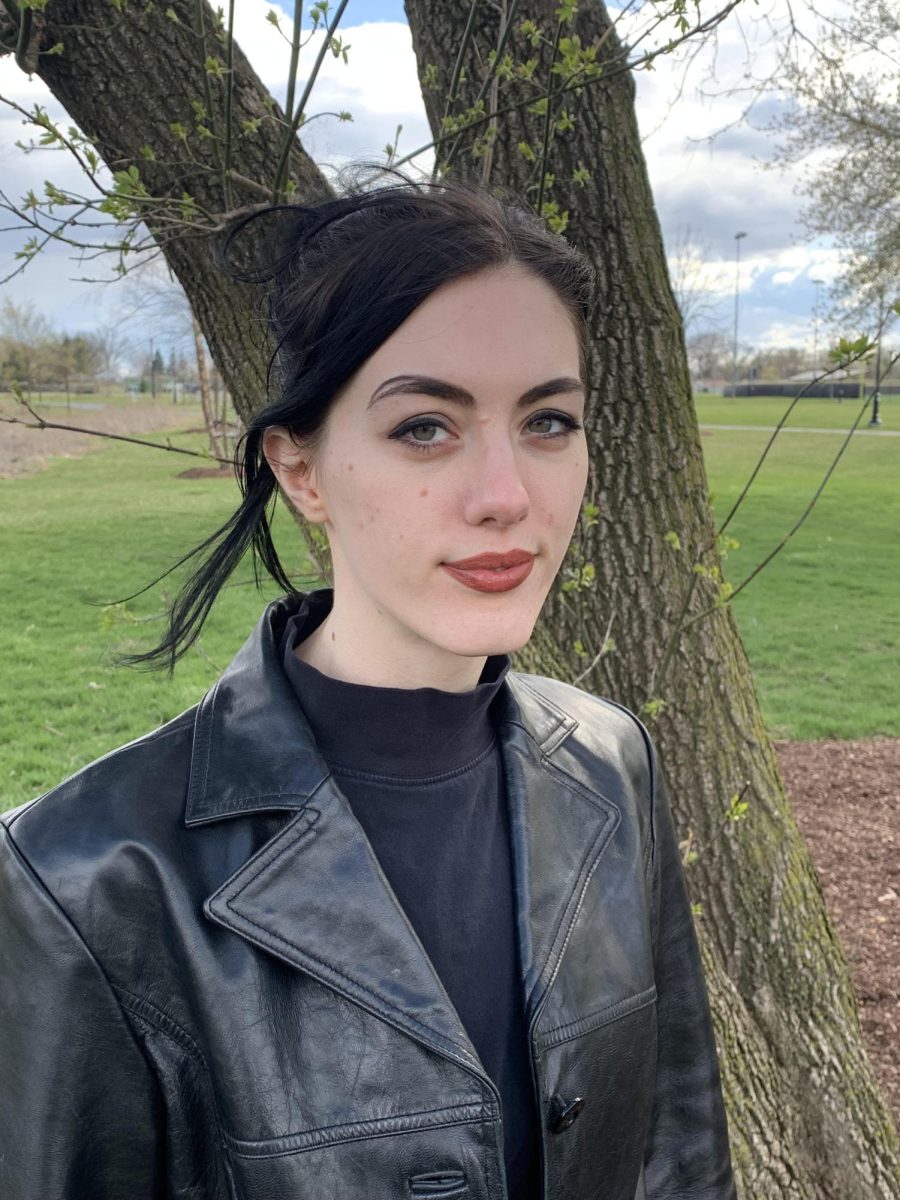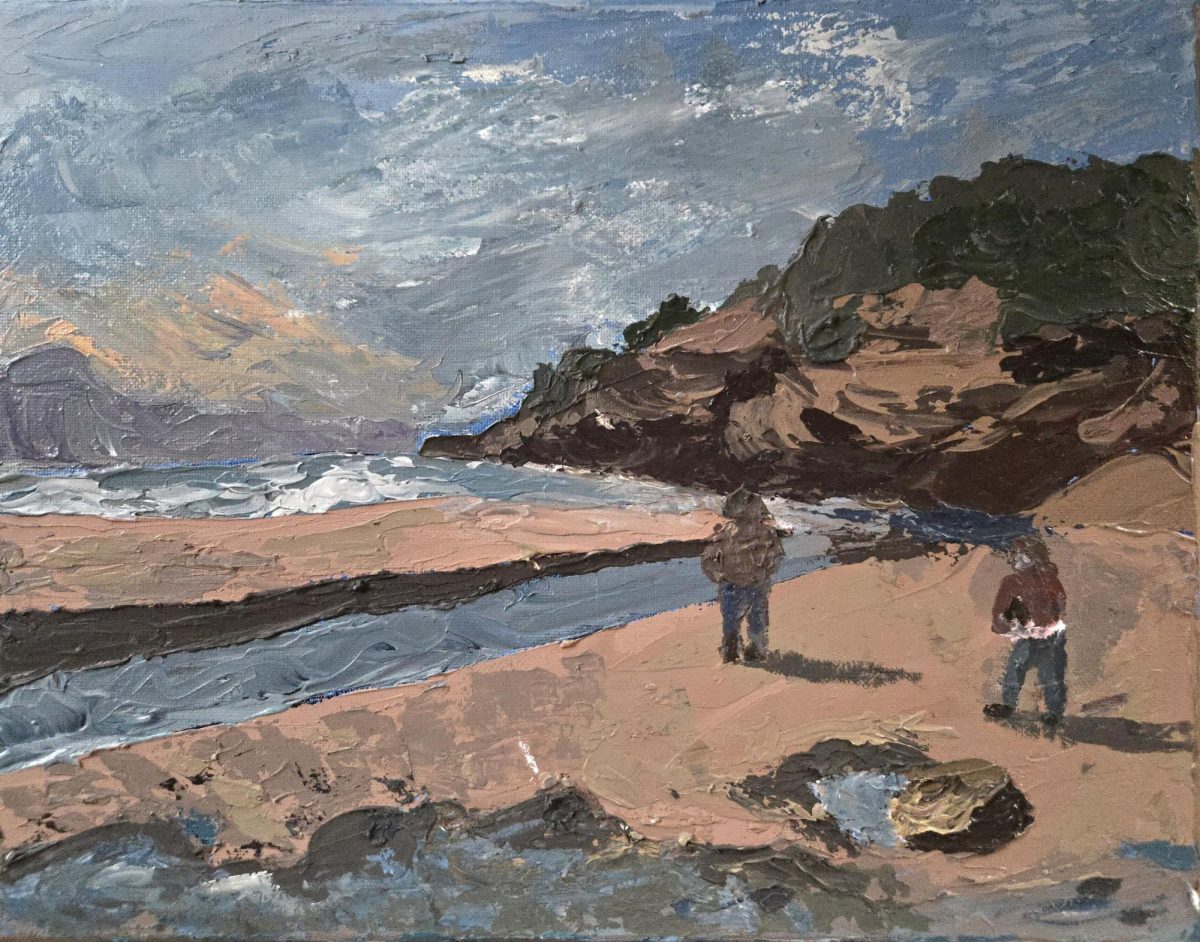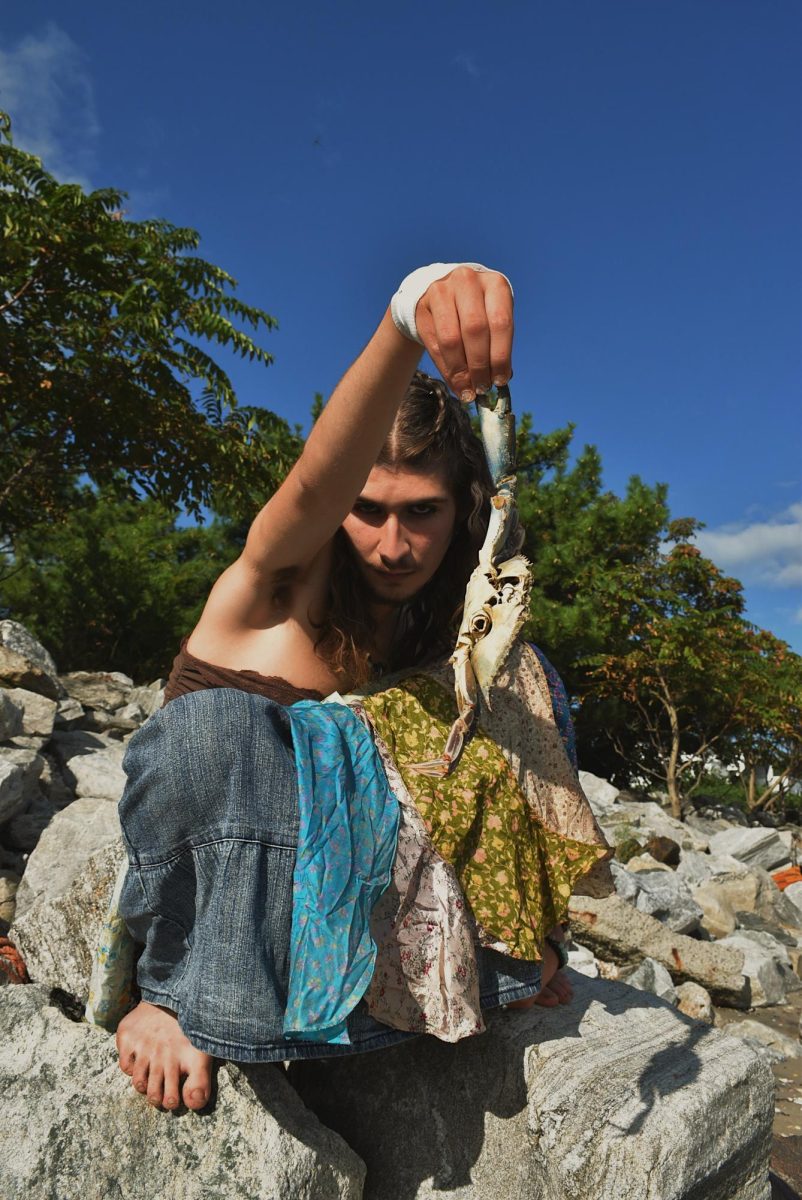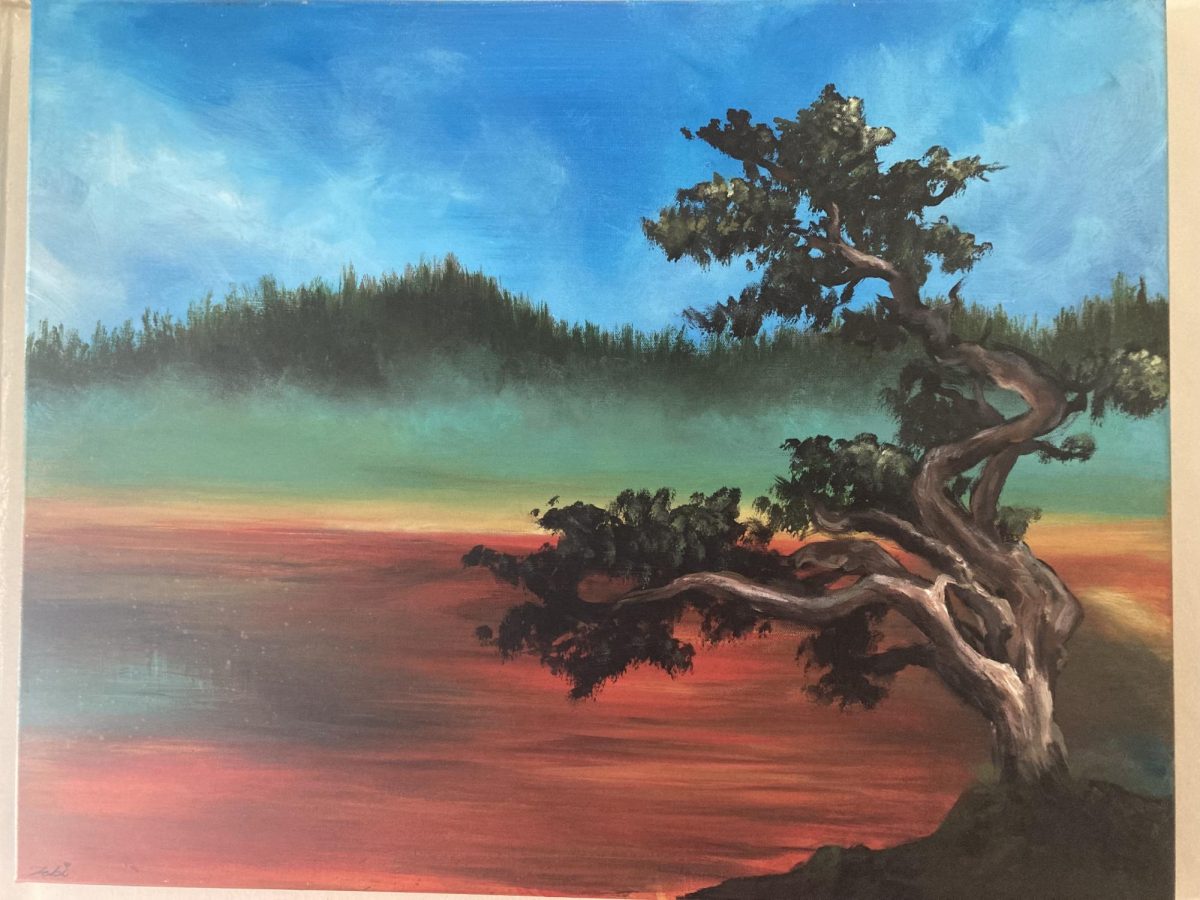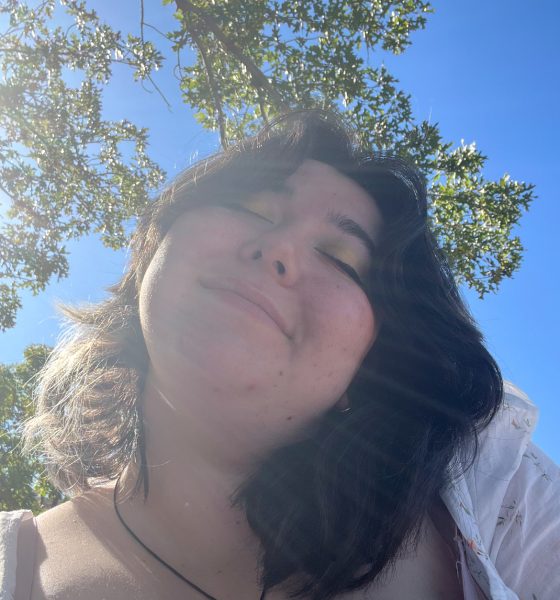The prestigious Stone Award for Literary Achievement, created by Oregon State University alum Patrick Stone and his wife Vicki, is awarded every couple of years to an American author who is not only a critically acclaimed writer, but a mentor and teacher dedicated to fostering the next generation of writers. This year, the award was given to best-selling author and botanist Robin Wall Kimmerer. Her books, Gathering Moss (2003) and Braiding Sweetgrass (2013) have been monuments in the world of ethnobotany and nature writing for over a decade, and last weekend, she was at OSU to accept the award and give a lecture at PRAx (the Patricia Valian Reser Center for the Creative Arts).
Throughout Spring Term, I, along with a group of about 50 students from every college and many different areas of study, have been participating in the Stone Award Book Club, a 1-credit class that offered events and meaningful conversations about Robin’s books in preparation for her visit. About the club, Liddy Detar, the advisor for the School of Writing Literature and Film (SWLF) and the instructor for the course, said:
The Stone Award Book Club has offered an incredible opportunity to meet and share conversations with so many students from diverse fields across campus. Students, led by an outstanding leadership of their peers, have reconnected with the pleasures of reading, the power of writing, and the excitement of collaborating across disciplinary boundaries to spark new ways of thinking and understanding ourselves in community.
Students were able to participate in events such as a Moss Walk led by plant ecologist Dr. Bruce McCune or a discussion on Kimmerer’s devotion to language led by Tim Jensen, the Director of SWLF, a self-taught botanist with a strong interest in environmental communication.
We also created five discussion groups, each led by either an undergraduate or graduate student leader, one for every section of Braiding Sweetgrass. Each group was tasked with developing an in-depth discussion for the rest of the club. These discussions dug deep into everyone’s experience with the book, highlighting the different perspectives created by the different areas of study, from Creative Writing to Forestry to Marine Biology. The discussions offered sources outside Robin’s books to “extend the learning”. For example, I had the opportunity to lead the group assigned to section three, Picking Sweetgrass, and we were struck by Robin’s descriptions of communal responsibility and creating an economy based on reciprocity with the earth. With Fall 2024 registration coming up, we decided to bring to attention some classes that build on the concepts introduced in Braiding Sweetgrass, as well as an article by Kimmerer for Orion Magazine about a new way to interact with the natural world by changing the words we use to describe it.
Just last week, students in the Stone Award Book Club and other members of the OSU community had the incredible opportunity to witness Kimmerer’s beautiful way of speaking and thinking firsthand. On Friday, May 17th, she stopped by PRAx around noon to do a live interview with Dave Miller for “Think Out Loud,” a show by Oregon Public Broadcasting. Students in the audience were able to ask her questions on air about her advice for bringing the idea of reciprocity into our everyday lives, the connections she makes between her creative and scientific interests, and even what her favorite moss-dwelling invertebrates are (spoiler alert — it’s tardigrades).
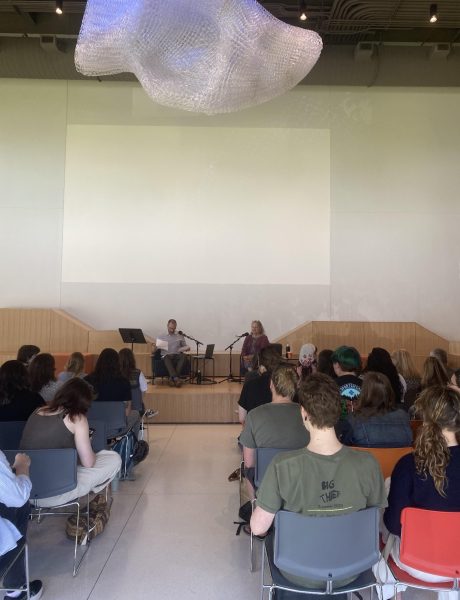
In the evening, Robin returned to PRAx to give a lecture on her perspective of what it means to be a “nature writer” — what are the abilities and responsibilities of a nature writer? For those who weren’t able to attend in person, the event was live streamed at live.oregonstate.edu.
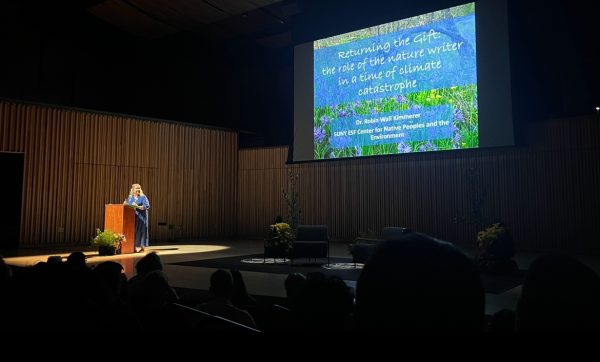
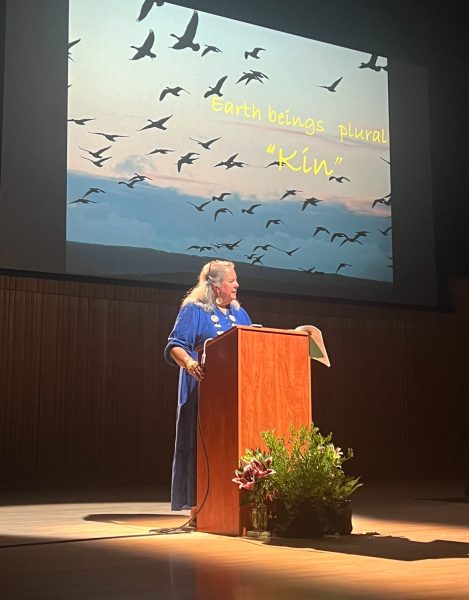
As a Cherokee Nation citizen and student in the College of Liberal Arts, I was offered the incredible chance to collaborate with Monroe Fox, a student in the College of Forestry and a member of the Kainai Nation/Blood Tribe of the Blackfoot Confederacy to deliver a beautiful Land Acknowledgement prior to the event.
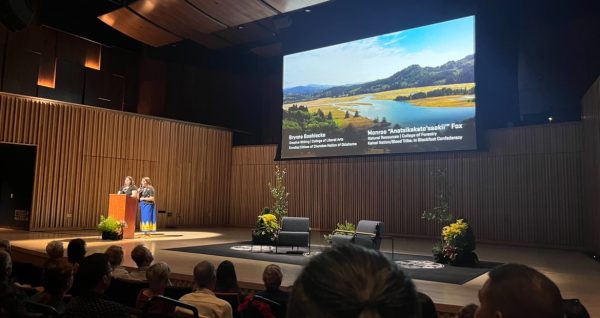
Her lecture was followed by the Q&A portion, led by SWLF faculty member Elena Passarello, with questions written on postcards prior to the event and from community events around town during the week leading up to Robin’s visit.
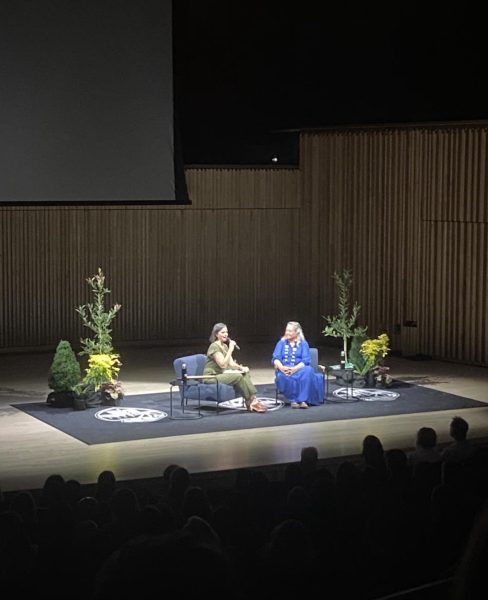
After this, Monroe and I returned to the stage with Chance White Eyes, the Director of Tribal Relations at OSU, to present Robin with the gift of a blanket from Eighth Generation, and a yellow legal pad and purple pen, her preferred writing tools. Monroe and I were both overjoyed to be able to honor Robin and experience such a special moment with her.
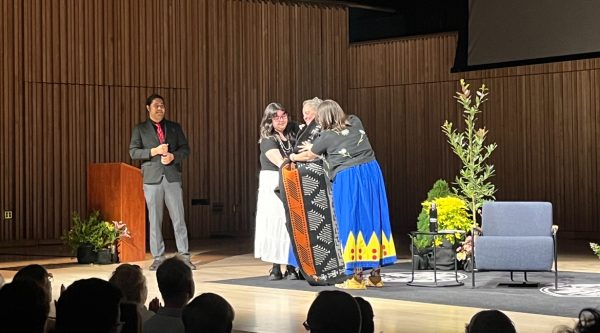
The lecture was followed by a book signing where fans and students were able to meet Robin face to face to discuss her wonderful impact on writing and shifting perspectives about humanity’s relationship with the natural world. This seems like a small thing, but I was struck by how deliberately she signed each attendee’s books, carefully writing out her full name and taking the time to thank each person.
